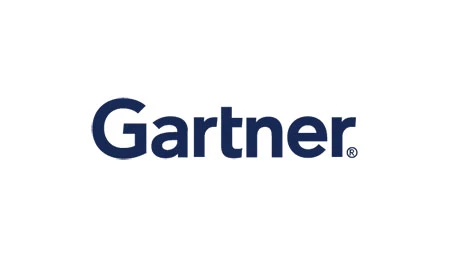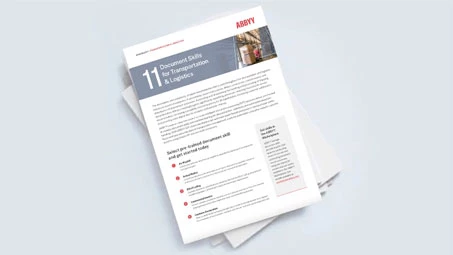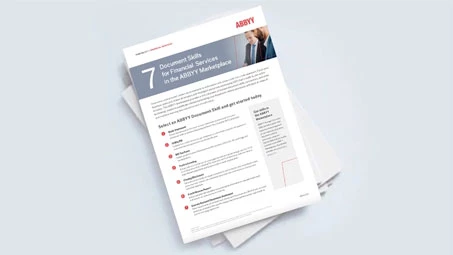
Process Drives Innovation, Efficiency, and Scalability in an
AI-First World
by Jon Knisley, Product Marketing Manager
To future-proof companies for the AI era, leaders are increasingly looking to artificial intelligence (AI) as a transformative force for innovation, efficiency, and scalability. However, as businesses navigate this landscape, they often face the stark realization that technology alone isn't the solution. Behind every successful AI implementation lies a robust and well-understood process framework.
Process intelligence acts as the bridge between ambitious AI strategies and practical, measurable outcomes, offering businesses the clarity needed to identify inefficiencies, optimize workflows, and make smarter decisions. By grounding AI initiatives in a deep understanding of processes, organizations can unlock unparalleled opportunities for sustainable competitive advantage, growth, and adaptability in an ever-evolving market.
Process as a catalyst for innovation
Innovation in an AI-first world is not solely about deploying advanced technologies. It is about reimagining existing workflows and redefining how work gets done. At the heart of this transformation is process intelligence. By mapping out current processes and gaining a comprehensive understanding of operations, businesses can identify inefficiencies and areas ripe for innovation.
Process intelligence acts as a catalyst for innovation by revealing bottlenecks and redundancies that AI can address. For instance, by automating repetitive tasks or enhancing decision-making processes, organizations can unlock new levels of creativity and efficiency. This approach ensures that AI isn't just layered atop outdated workflows but is integrated strategically to complement and enhance them.
Moreover, a focus on process allows organizations to pivot quickly in response to new AI capabilities and market demands. By maintaining an agile process framework, businesses can experiment with AI-driven solutions, iterate rapidly, and scale successful initiatives across the enterprise.
Efficiency: The process-driven advantage
Efficiency gains are among the most tangible benefits of AI adoption, but achieving them requires more than just implementing algorithms. It demands a process-driven approach. According to research from IDC, inefficient processes can cost companies 20%-30% of their revenue annually. This underscores the critical role that process plays in driving smarter, faster workflows and strategic use of resources.
A process-centric approach ensures that AI initiatives are aligned with enterprise goals and operational realities. By understanding and optimizing existing workflows, businesses can ensure that AI integration magnifies efficiency rather than compounding inefficiencies. This involves restructuring tasks, reallocating resources, and redefining roles to create an environment where AI technologies can function optimally.
Furthermore, process monitoring and real-time compliance tracking provide organizations with the visibility needed to maintain smooth operations. By proactively identifying issues and ensuring adherence to requirements, businesses can avert disruptions and sustain efficient workflows. This process-driven vigilance ensures that the promised efficiency gains of AI are realized and sustained.
Scalability: Building on a strong process foundation
Scalability is the next frontier for AI adoption. As businesses aim to roll out AI initiatives across the enterprise, a strong process foundation becomes indispensable. According to Accenture's 2024 Pulse of Change Index survey, only 27% of organizations are ready to scale generative AI, highlighting the need for proper support.
Process intelligence provides the roadmap for scalable AI integration. By simulating and testing new workflows, organizations can experiment with changes risk-free and refine processes before full-scale implementation. This iterative approach enables businesses to scale AI successfully without compromising operational excellence.
Optimizing processes also enhances organizational agility and resiliency, allowing businesses to respond nimbly to evolving market needs. An optimized process framework supports continuous improvement and scalability, ensuring that AI technologies can be scaled effectively across the enterprise.
The emergence of the agentic enterprise
As organizations gain robust process understanding, they position themselves at the forefront of the AI-first era. The concept of the agentic enterprise, where decision-making becomes holistic, autonomous, and data-driven, hinges on comprehensive process intelligence. By breaking down silos and fostering cross-functional collaboration, businesses can transcend traditional operational boundaries.
Process intelligence facilitates communication and collaboration, enabling organizations to harness the collective intelligence of their workforce. By involving diverse stakeholders in the process optimization journey, businesses can cultivate a culture of innovation and openness, essential attributes of the agentic enterprise.
Start now, think big, go fast
Process is the linchpin that connects ambitious AI goals with actionable execution. By driving innovation, efficiency, and scalability, process enables businesses to unlock AI's full potential and achieve sustained competitive advantage. As the AI-first world unfolds, organizations that prioritize process intelligence will not only thrive but also lead the way in the emergence of the agentic enterprise.
The time to act is now. By harnessing the power of process, businesses can transform the way they operate, drive AI-driven innovation, and secure their future in an increasingly competitive landscape.





